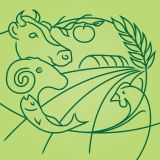In this article:
What is an Animal Nutrition Degree?
An animal nutrition degree is a specialized program that teaches students how to understand and manage the dietary needs of animals. This degree focuses on how different foods, vitamins, and minerals affect animal health, growth, and behavior. Students learn about animal biology, digestion, feed formulation, and how to create balanced diets for pets, farm animals, wildlife, and even zoo animals.
People who earn an animal nutrition degree can work in many places, such as farms, pet food companies, zoos, research labs, or veterinary clinics. The knowledge gained in this program helps them create healthier diets for animals, improve their well-being, and solve nutrition-related problems. This degree is great for anyone who loves animals and wants to help them live healthier lives through proper nutrition.
Program Options
There are several program options available for those interested in studying animal nutrition. These programs are typically offered at universities, colleges, and agricultural schools with strong animal science or veterinary departments.
- Bachelor’s Degree in Animal Science: This undergraduate program often includes coursework in animal nutrition, biology, physiology, and feed management. It provides a solid foundation for careers in animal care, agriculture, and nutrition.
- Bachelor’s Degree in Animal Nutrition: Some schools offer more specialized undergraduate degrees focused specifically on animal nutrition, covering topics like diet formulation, nutrient metabolism, and the nutritional needs of different species.
- Master’s Degree in Animal Nutrition: A master’s program allows students to deepen their knowledge through advanced coursework and research. This option is ideal for those who want to specialize further or pursue roles in research, consulting, or higher-level positions in the industry.
- Ph.D. in Animal Nutrition: A doctoral program focuses on intensive research and is suited for individuals interested in academic, research, or leadership roles. Students conduct original research on complex nutrition topics and often contribute new knowledge to the field.
- Veterinary Nutrition Specialization: Veterinarians can pursue specialized training in nutrition through residency programs, often leading to board certification in veterinary nutrition. This path is designed for those who want to work directly with animal health and clinical nutrition.
- Certificate Programs: Some institutions offer shorter certificate programs in animal nutrition, which can be beneficial for professionals already working in related fields who want to expand their expertise without committing to a full degree program.
Skills You’ll Learn
Students pursuing an animal nutrition degree gain a variety of valuable skills that prepare them for careers in animal health, agriculture, and research. Here are some key skills typically learned:
- Nutrient Analysis: Understanding how to evaluate the nutritional content of different feeds and ingredients to ensure animals receive balanced diets.
- Diet Formulation: Learning to design customized feeding programs for various species based on their age, health, and activity level.
- Animal Biology and Physiology: Gaining knowledge of how animals digest and absorb nutrients, and how nutrition affects their growth, reproduction, and overall health.
- Research and Data Analysis: Developing skills in conducting scientific research, analyzing data, and applying findings to improve animal nutrition practices.
- Problem-Solving: Learning to identify and address nutrition-related health problems in animals, such as deficiencies or imbalances.
- Communication: Acquiring the ability to clearly explain nutrition plans and recommendations to farmers, veterinarians, pet owners, and industry professionals.
- Critical Thinking: Applying scientific knowledge to real-world situations to make informed decisions about animal diets and feeding strategies.
What Can You Do with an Animal Nutrition Degree?
An animal nutrition degree opens the door to a variety of careers focused on animal health, food production, and research. Here are some common paths you can pursue:
- Animal Nutritionist: Develop and advise on diets for pets, livestock, or zoo animals to improve health, growth, and productivity.
- Feed Formulation Specialist: Work with animal feed companies to create balanced and effective feed products tailored to different species.
- Veterinary Nutrition Consultant: Assist veterinarians in creating specialized nutrition plans for animals with specific health conditions.
- Research Scientist: Conduct studies on animal nutrition, diet effects, and new feeding methods in academic institutions or private research labs.
- Livestock Manager: Oversee the care and feeding of farm animals to ensure they remain healthy and productive.
- Pet Food Product Developer: Help design and test new pet food products that meet nutritional standards and consumer preferences.
- Zoo or Wildlife Nutritionist: Plan and monitor diets for a wide variety of exotic animals in zoos or wildlife conservation programs.
- Extension Specialist: Educate farmers, ranchers, and animal caretakers on best practices in animal nutrition and feeding strategies.

